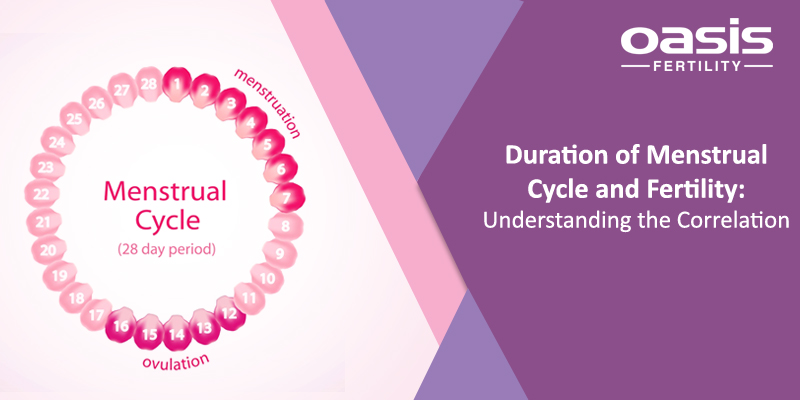Duration of Menstrual Cycle and Fertility

How does the length of the menstrual cycle affect fertility
Menstrual cycles are perhaps one of the most important indicators of your reproductive health. Each menstrual cycle starts from the first day of a woman’s period to the day prior to the start of the next period. Girls may start menstruating from the age of 10 but the average age at which girls start menstruating is around 12 to 13 years of age. Healthy women with normal reproductive health can
continue to menstruate till they attain menopause at the age of 47 to 53.
The length of the menstrual cycle differs from woman to woman. The average menstrual cycle is 28 days long but can be anything from 24 to 35 days and still be considered normal. The menstrual cycle’s length is a key indicator of a woman’s fertility, hormonal imbalances in the body and the occurrence of ovulation. Let us take a look at what the different lengths of the menstrual cycle mean
for fertility.
- A menstrual cycle of normal duration
Duration of the cycle: 24 to 35 days
Ovulation: Regular cycles indicate that the ovulation occurs normally and on time.
What does this say about your fertility?
When cycles are of normal duration, the hormones responsible for reproduction are balanced and will generally be suitable to support conception naturally. The woman who has normal menstrual cycles usually is fertile.
- Menstrual cycles that are short
Duration: Less than 24 days
Ovulation: Ovulation in short menstrual cycles tend to happen earlier than normal or not happen at all.
What does this say about fertility?
Shortened menstrual cycles may mean that the woman’s ovaries contain fewer eggs than normal. This is usually seen in women nearing menopausal age. Sometimes, the menstrual cycles can be short if the woman is not ovulating at all. If this is the case, the woman may not be able to conceive naturally.
- Long or irregular menstrual cycles
Duration: Over 35 days
Ovulation: Ovulation may not occur in the cycle or may occur irregularly. This can be due to Polycystic ovarian syndrome or other issues in female reproductive system.
What does this say about fertility?
If the menstrual cycle is longer than normal, it may mean that the ovulation may not be occurring at all or may be occurring too irregularly to predict. This can make conception by natural methods difficult.
- No menstruation at all
Some women may not menstruate at all, which means that they may not have an active menstrual cycle. This condition is called amenorrhea. Primary amenorrhea is when a woman has never had a single menstrual cycle in her life and secondary amenorrhea is when a woman has experienced a lack of menstruation for a long period (three months or more) after experiencing at least one
menstrual period.
What does it mean for fertility?
Women who have amenorrhea may not experience ovulation and can find getting pregnant, by natural means, extremely difficult.
- Prolonged menstrual bleeding
Duration: Over 7 days
Ovulation: Prolonged bleeding can be due to a hormonal problems that may be causing a delay in follicular growth. It can also be due to some structural problem in the uterus or its lining.
What does this mean for fertility?
Prolonged bleeding can be a sign that the ovaries may not be growing a dominant follicle, leading to absent or delayed ovulation. Uterine polyps, fibroids, and cancer can also cause prolonged bleeding. In these cases, implantation may be difficult or may end in a miscarriage.
If you have been experiencing a menstrual cycle of abnormal duration and are concerned that it may affect your fertility, talk to the fertility experts at Oasis Fertility.










